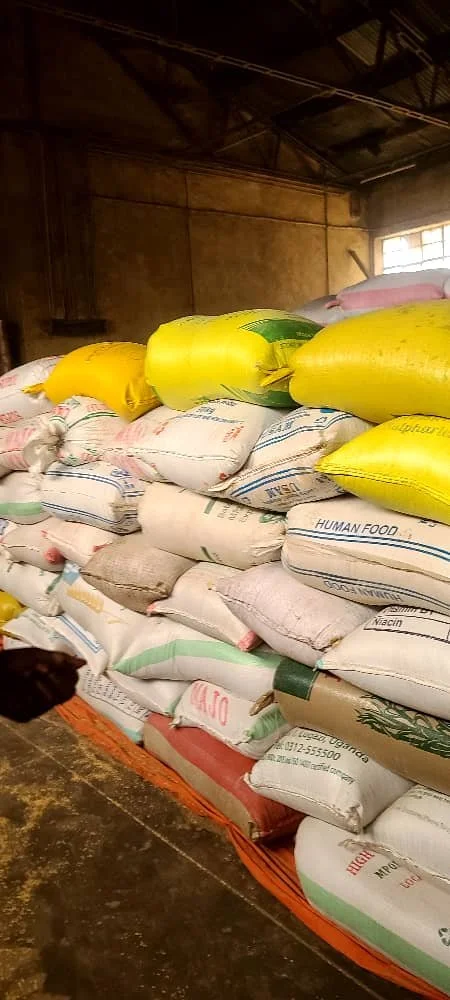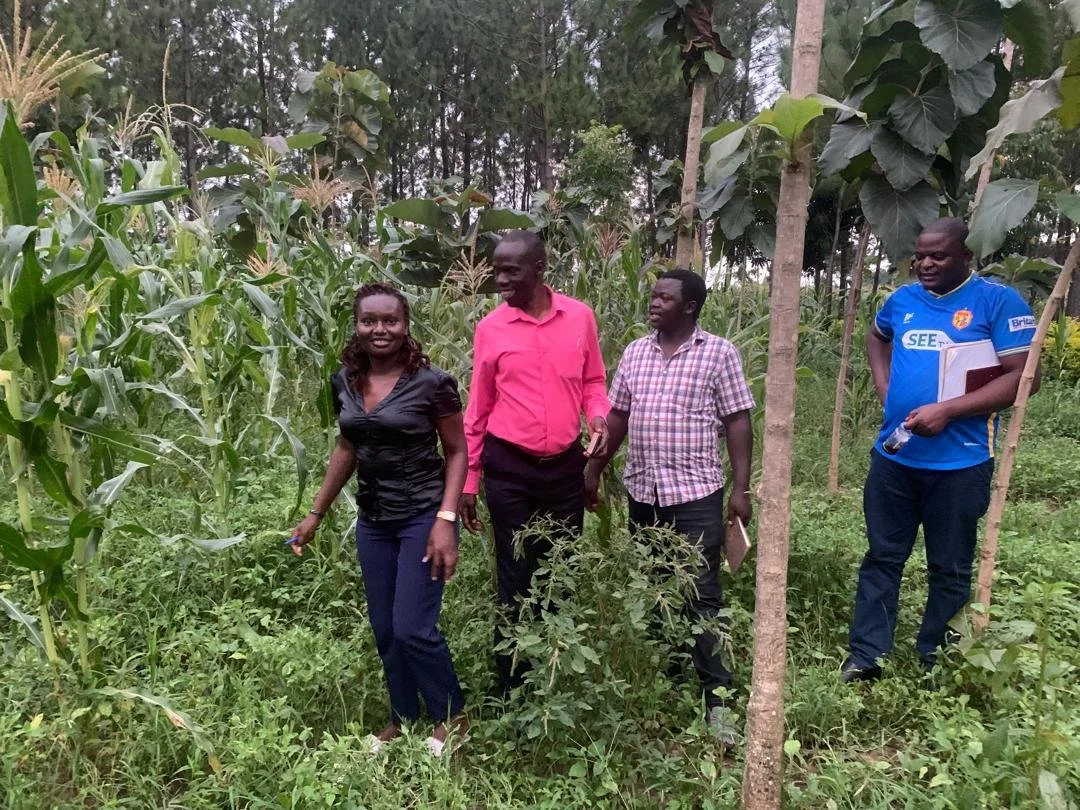Regen Harvests: Empowering farmers and securing futures.
In the heart of Uganda’s agricultural landscape, an agri-food business is reinventing bulking models for smallholder farmers to better serve agro-processors. Regen Harvests is taking charge in addressing key challenges such as access to finance and reliable markets, for smallholder farmers in Uganda.
Cultivating Impact
Regen Harvests is an agri-food business that provides smallholder farmers with Crop Advance Payments to manage their production costs (inputs, labour, etc.), and links them to off-takers, especially processors that generally face challenges to consistently source high quality produce.
Dr Akite Irine, Hannignton Wako and Jimmy Ouni, the co- founders are on a mission to transform the food system in Uganda by providing cash to smallholder farmers to take care of their daily needs as they wait for harvest.
“Farmers earn seasonally, yet they spend daily,” explains Jimmy Ouni.
The Regen Harvests team, Hannington Wako (at the extreme left), Jimmy Ouni, Dr. Akite Irine with Orisa Raphael.
Smallholder farmers in Uganda face significant hurdles in accessing capital. Limited cash availability often means delayed or insufficient investments in quality seeds, farm inputs, labour and equipment, resulting in reduced yields and low income levels. Recognising this critical gap, Regen Harvests decided to offer a powerful solution.
“We define success by our ability to tackle the systemic issues affecting the agricultural sector, such as limited market access, low yields for farmers, poor quality inputs, conventional farming practices, and underpriced farmer’s produce,” continues Dr. Irine Akite
Through the Regen Harvests’ business model, smallholder farmers receive upfront payments of up to a third of the expected harvest, estimated by observation in the garden, halfway the season. This enables them to purchase essential inputs without relying on traditional credit systems. This financial empowerment not only boosts farmers' productivity but also ensures a more reliable source of funds throughout the agricultural cycle.
Connecting Farmers to Markets
Another pressing challenge for Ugandan smallholder farmers has been the unpredictable nature of market access. Many farmers struggle to find reliable buyers for their produce, leading to income uncertainty while selling their produce at low prices. Regen Harvests is addressing this issue by establishing strong partnerships with off-takers, ensuring a consistent market for smallholder farmers’ harvests.
By leveraging its extensive network and market expertise, Regen Harvets connects smallholder farmers directly with buyers who value quality regeneratively produced harvest. This direct linkage not only eliminates middlemen but also guarantees fair prices and timely payments, empowering farmers with a market for their produce. Many agro-processors are producing largely under their capacity, mainly due to supply issues. The buyers see this as a partnership to source ingredients reliably and consistently, both in quantity and quality.
Continuous learning
While empowering smallholder farmers, Regen Harvests is also fostering a regenerative food system in Uganda. The co-founders continue to learn invaluable lessons like the importance of continuous testing of their business model.
“Testing is important for successful entrepreneurship, you need to touch base and learn what is on ground. Humility is crucial especially when working in teams,” Hannington Wako asserts.
The Regen Harvests team during one of their field visits.
Impact and Vision
The co-founders of Regen Harvests in their journey to transform the food system in Uganda, have learned that successful entrepreneurship entails addressing the right pain points.
Looking ahead, Regen Harvests remains committed to expanding its reach and impact, with plans to scale its Cash Advance Payments (CAP) business model and forge new partnerships with additional off-takers.
“My goal is impacting 5 million farmers in Uganda, creating 5 million jobs, and ensuring that 10 million people across Sub-Saharan Africa have access to healthy food,” Jimmy Ouni concludes.



